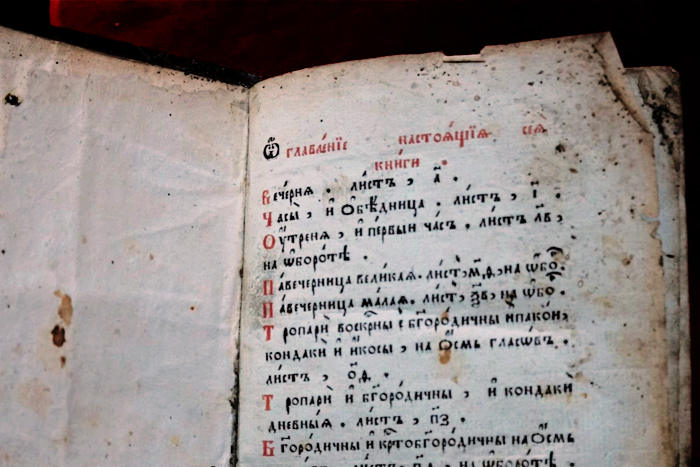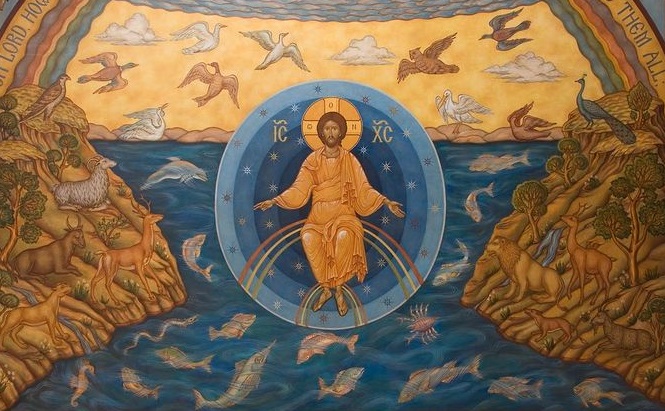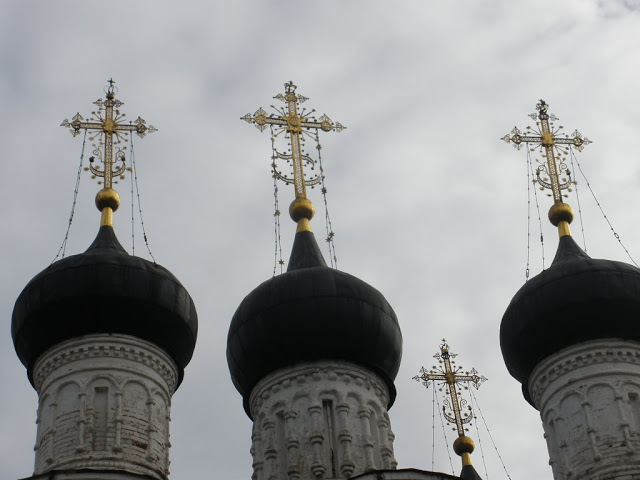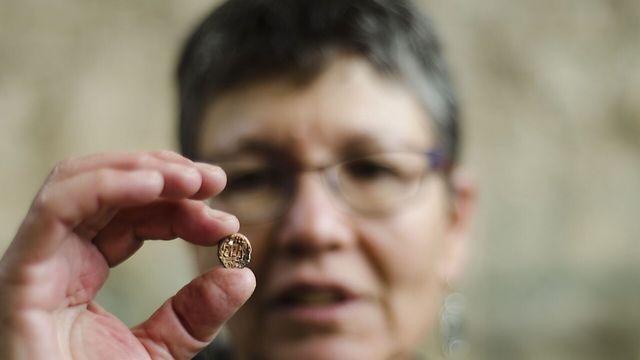
On the one hand, the church charter is a set of rules that an Orthodox Christian has to comply with. But, as Mikhail Skaballanovich, professor of the Kiev Theological Academy, aptly remarked in his book The Typicon Explained, this isn’t enough. We need to look deeper…
I believe it is appropriate to present the extensive quotation of the Kiev theologian in full here:
The Meaning of the Word Typicon
In each and every book, the title of the book is very important. A good title immediately informs the reader what he is likely to find in the book, and even hints at the solution of the issue to which the book is dedicated. The book that is now called Typicon used to have other titles, such as The Charter. Its current title has evolved over the centuries, and this already suggests that it should be elaborate and significant. – Being an adjective from τύπος – feature, look, sample, model, norm, τυπικός means “compiled from a model”, but it is not the same with άντίτυπος, that is, a photo, a copy. Therefore, in English the word τυπικός roughly corresponds to the word exemplary, in the sense of “the most appropriate to its model”. Τυπικόν, which implies βιβλίον, a book, may mean “the book of samples or models”. In the Orthodox Church alone, the book setting out the order of the divine service bears such an original title. It is untranslatable into Slavonic, and therefore was left without translation. The word Charter would be an inaccurate translation of the Greek τυπικόν (“Charter” corresponds to the Greek διάταξις).
Meaning of the Title
This title skilfully defines not only the nature of the book it has been given to but also the divine service with which it deals. In relation to this divine service, a book with such a title does not want to legislate it in the slightest detail by eliminating any freedom for its performers but rather attempts to describe an exalted ideal of divine worship, the beauty of which would arouse a constant desire to implement it, even if it isn’t always fully possible, as is the case with any other ideal or any other sublime model. Such is essentially the entire law of Christ, which is not quite feasible in all its heavenly glory, but its divine majesty stirs up an irresistible irrepressible desire in mankind for its fulfillment and thereby revitalizes the world.”
In other words, the Charter, the Typicon, is not only a set of rules of conduct conceptualized in the legal sense, but the celestial ideal to strive for. It is a way of development, dynamics, constant perfection of man in communion with God. The Charter should in no way become a concentration camp; on the contrary, it is intended by the grace of the Holy Spirit through the works of the Holy Fathers to free the human soul to help it communicate with God. We should not make an idol of the Charter, as Metropolitan Anthony of Sourozh said. It is full of grace because it is a staircase to Heaven. It is a gracious means to comprehend God, but not an end in itself.
To put it bluntly, for example, Sergei Bubka hit a height of about six meters. An ordinary man who wants to do high jumps is told that he has to do the same. It’s a must. Go ahead. He jumps and breaks his neck, because he attempted to do without preparation what a trained athlete had been practicing for years or even decades.
Making new Orthodox Christians comply with all the provisions of the charter is about the same as demanding from the newly planted grain of apple tree to bring forth fruit immediately. The fruit will appear only a few years later, and if the farmer disagrees and wants to speed up the process, he will destroy the plant.
The Holy Apostle Paul speaks openly about it, Of whom we have many things to say, and hard to be uttered, seeing ye are dull of hearing. For when for the time ye ought to be teachers, ye have need that one teach you again which be the first principles of the oracles of God; and are become such as have need of milk, and not of strong meat. For every one that useth milk is unskilful in the word of righteousness: for he is a babe. But strong meat belongeth to them that are of full age, even those who by reason of use have their senses exercised to discern both good and evil. (Hebrews 5:11–14).
That is, the Apostle says that there are certain levels in the individual’s spiritual development. Newborn “babies” need spiritual “milk” that is intelligible to them, whereas those who are already practicing Christians can also eat “solid” foods. An infant cannot be immediately given solid food, otherwise his stomach will stop. He has to be prepared for it.
In this sense, Orthodoxy is a life of constant improvement. Orthodoxy is growth. You must not enter this growth headlong, with excessive zeal, because you will disrupt this life or, God forbid, interrupt your growth. You should trust experienced church vine growers, whom God has put to control and monitor your growth and to help you. Those vine growers are priests.
Choose a priest whom you like and consult with him. Living by advice is a sign of great wisdom, as Holy Fathers say.
Let us remember, dear brothers and sisters, that silence is often more important than words. A word cuts deeper than a straight razor. If you have any advice, first of all search in your heart whether you love that person, whether you understand where they come from and how they live (after all, a person is the whole world!), whether you can put yourself in their shoes and remember what you were like at his age or when you were a neophyte. One of the main rules of teaching is that the teacher should be a little bit like a child himself, as if to step down to the level of development of the child and speak his language. He should remember what he was like at that age. Thus, if you do not hit that person on the head with the Church regulations once or twice or three or four times (such as: do not stand there, do not stand there, etc.), but instead look into the life of that person, look into the Holy of Holies, the image and likeness of God, fill yourself with love to him, then you can give advice.
You have to remember that everything begins with love. That’s the main principle of the Church Charter.
Translated by The Catalogue of Good Deeds
Source: https://pravlife.org/ru/content/nuzhno-li-vypolnyat-vse-trebovaniya-cerkovnogo-ustava



